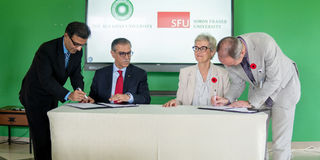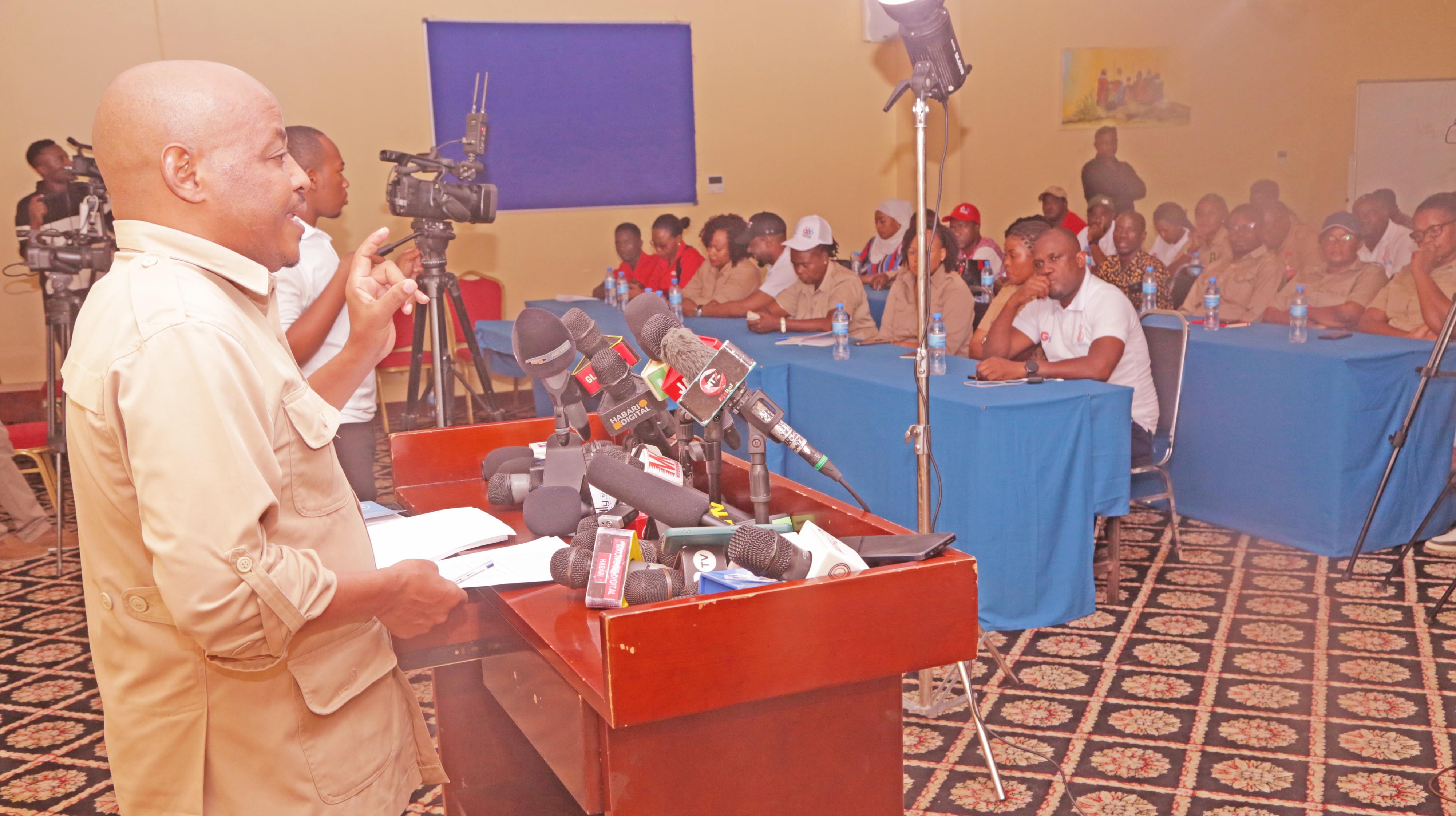Aga Khan University roots for expanded partnerships

Vice chancellor of the Aga Khan University, Dr Sulaiman Shahabuddin (left) signs a memorandum of understanding with Canada’s Simon Fraser University’s Dr Joy Johnson to partner in climate change research. PHOTO | BERTHA ISMAIL
What you need to know:
- With more than 20 years of operation in Tanzania, Aga Khan University has recorded a number of achievements in the country. Bertha Ismail speaks to the vice chancellor of Aga Khan University, Dr Sulaiman.
Aga Khan University has had a presence in Tanzania for 21 years; could you briefly highlight the impact you have had throughout the period?
Aga Khan University has made significant contributions, graduating 1,430 students in education, nursing, and medicine.
Our alumni provide care in various public and private health facilities, and our experts contribute to government policies in various disciplines.
We collaborate with the government and local and international partners on different community-focused projects that address key gaps. Our ongoing projects include a Maternal Health project that aims to co-create safe and respectful care during pregnancy and childbirth. There is also the school-Wide Literacy programme, through which reading clubs instill the reading habit in children. We have an early childhood development project to enhance the overall well-being of children in their communities and foundations for learning projects that promote women’s empowerment and gender equality. There is a resilience study that supports resilience among women in income-generation associations, addressing maternal and child health challenges.
You have been running the Arusha Community Outreach Centre for over 10 years, could you describe the difference the centre has made in the community?
In 2013, the Aga Khan's Community Outreach Centre in Arusha was established with the aim of empowering the local community through knowledge and skills, to enhance their quality of life.Over 28,000 individuals have benefited from the training and, enjoying improved food security, increased incomes and improved healthcare.
Community based savings programme - Average Annual Savings have grown from Sh50,000 to Sh300,000 ($20 to $120) per member.
In health and wellness, we partner with the community for general wellness as well as cancer screening.
In nutrition we train women on good nutrition for improved health.
For example, in Oltrumet Hospital we have a demonstration centre where we train pregnant and nursing women on vegetable gardens farming so as to improve their nutrition.
Climate change is a big deal across the globe today and there are more concerted efforts towards environmental sustainability across the world. What is the Aga Khan University’s Arusha Climate and Environmental Research Centre (AKU-ACER) doing to address this?
In March 2022, Aga Khan University expanded its impact in Arusha with the launch of the Arusha Climate and Environmental Research Centre (AKU-ACER).The centre is at the forefront in pioneering ground-breaking research to combat climate change.We do this through strategic collaborations with local and international partners, to create long-term impact in environmental stewardship.A recent milestone involves our partnership with the Nelson Mandela Institution of Science and Technology (NM-AIST) and the Tanzania Wildlife Research Institute (TAWIRI).
Together, we are conducting research aimed at advancing climate change adaptation strategies and providing valuable insights to inform policy decisions in Tanzania.
We are also expanding our partnership to include Simon Fraser University (SFU), University of Dar es Salaam (UDSM) and Sokoine University of Agriculture (SUA). The collaboration includes field school opportunities with students and faculty from our university partners.
You recently started the nursing undergraduate programme in Dar es Salaam. How different is this training from others we have in the region?
We aspire to produce well-rounded nursing professionals who are equipped to serve their patients holistically and with utmost care by incorporating hands-on clinical experience on effective treatment
We also place great emphasis on research and innovation and access to a vast global community of health care practitioners
Quality of education is a critical part of growing tomorrow’s leaders. Could you highlight what the Aga Khan University is doing for teachers and overall educational development and how you are working with the government in this area?
We aspire to elevate the teaching profession through our Masters of Education programme and targeted professional development workshops for educators.Currently we are offering 6 professional development workshops focusing on different areas of teaching and administration
Like all our programmes, our education courses are practical, globally relevant and incorporating research and innovationThe impact of our alumni has been distinctive. They emerge as change agents and champions, making significant contributions in the schools, colleges and hold key government positions.
The programme’s alumni include exemplary teachers, education ministry officials, school and college principals, teacher trainers, district regional education officers and academics.
What future plans do you have for Aga Khan University in Tanzania and the rest of the East African region?
We will now focus on community Engagement that is deepening connections to address societal challenges. We also intend to start new educational programs that meet evolving needs, including, strengthening research capabilities for impactful projects.
Other plans include forming new partnerships for broader impact and expanding healthcare initiatives for overall well-being.



